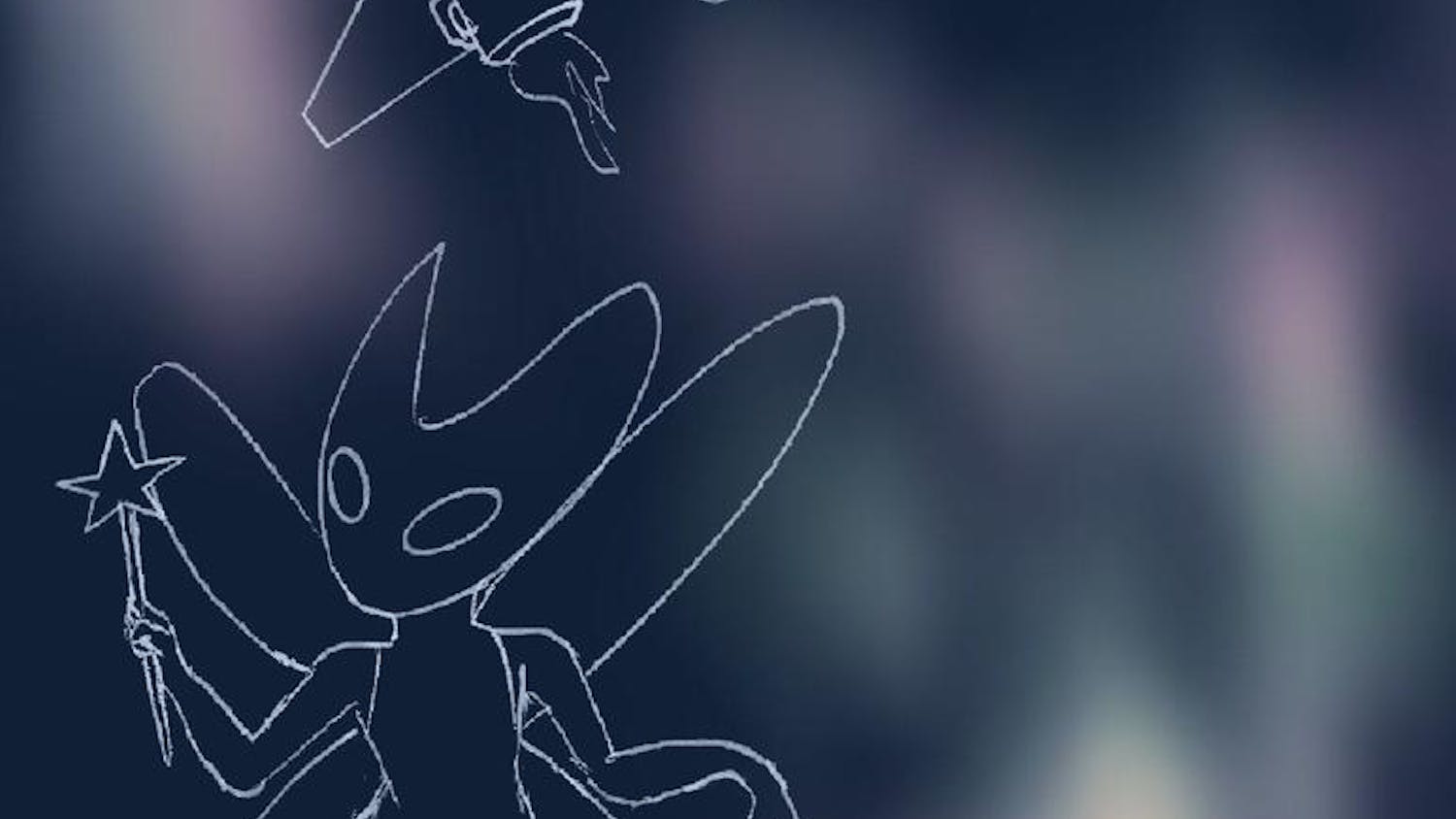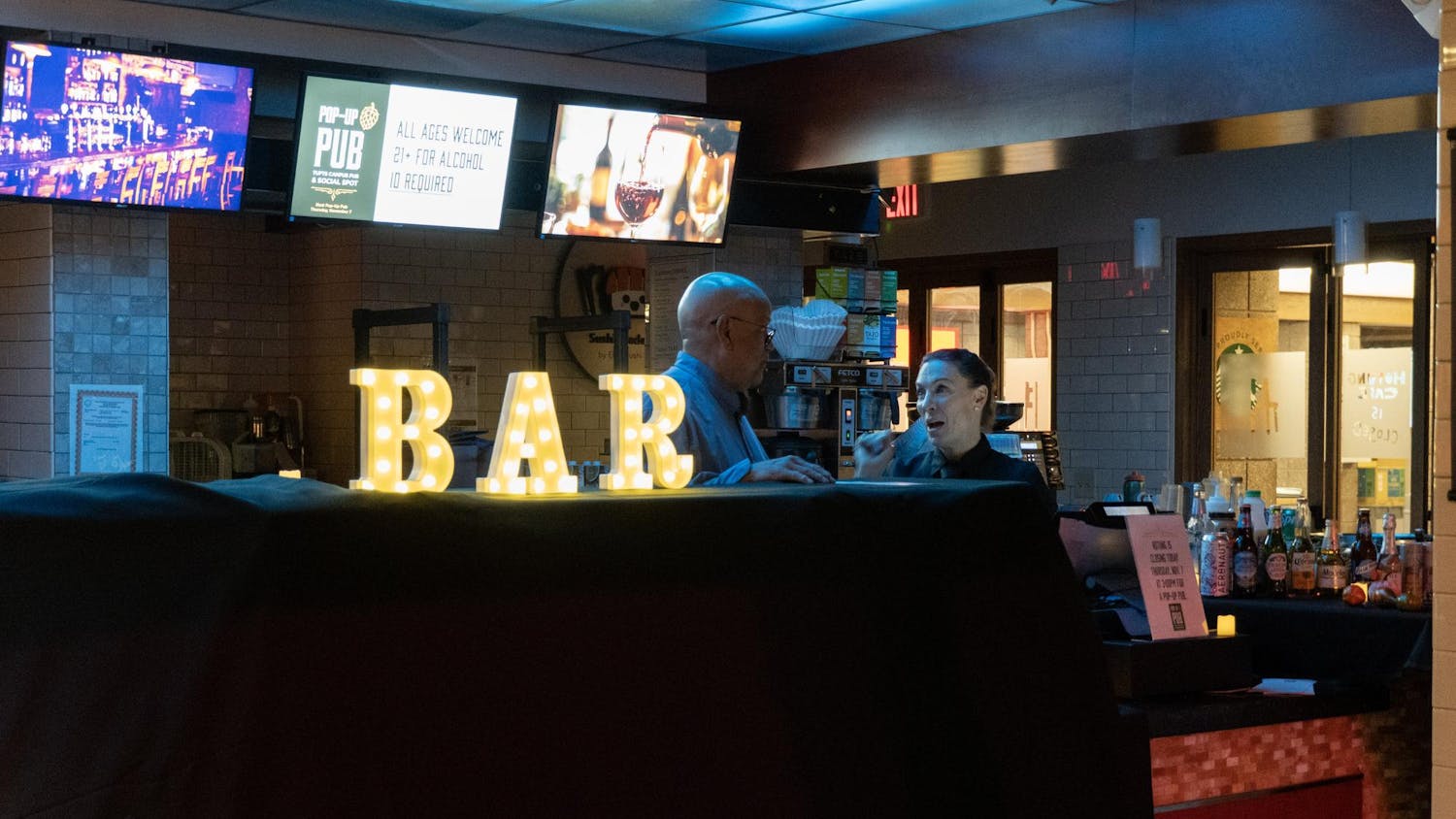Bowen’s Gate, a local landmark of love, looms large over Packard Avenue. Legend has it that if you kiss someone under the arch, you’ll marry them. Think of how many hearts have been forever joined right where you rush through to class.
These days, instead of stepping under Bowen’s Gate, you’d have better luck stepping into the world of dating apps. Since their founding in the early 2010s, dating apps like Hinge and Tinder have swept the scene, seeming to replace any other way to meet partners. For some, the deluge of profiles leads to lasting matches; for many others, it begets fatigue, disillusionment and, ultimately, deletion. Tinder’s signature flame stamps many of our phones, but is the app only leaving us worn out?
Gone are the days of the meet-cute; it seems that today, a Hinge match must suffice.
Dating in college was already challenging. Bailey Seaton, a sophomore, struggles to find a community of romantically-curious people. “There’s no ‘singles who are looking for love’ group at Tufts,” she joked. Even more taxing, Seaton believes, is finding someone with the same long-term expectations. “Especially at the beginning of your college career, a lot of people are looking for one thing and one thing only, and they’re not here to be dating.”
Here’s where dating apps flourish. The defining quality of apps like Hinge and Tinder is that they allow the user to interact with profiles whose romantic expectations — whether that be merely a hookup or something more serious — are as clearly stated as their height and hobbies. Moreover, daters pick apps that suit them: Perhaps they download Tinder for hookups and quick dates, or move to Hinge for long-term love.
The Tufts bubble is tight, and any experienced dater knows that an on-campus breakup can amount to nothing short of social chaos. That leaves some students yearning for an outside supply of daters — another place where apps can assist. “Tufts is such a small community that people struggle to figure out how to have the casual relationship they might want,” Emma Cohen, the CARE Office’s assistant director, said. “Lots of people are using dating apps to meet people off campus [because] it’s such a tight-knit community.”
On campus, these apps provide students with a buffer from the awkwardness of attempting — and, even more awkward, of failing — to make in-person connections. Cohen, who routinely talks to students and advises them on both romantic and sexual matters, explains common sentiments shared by students: “People will be like: ‘I was wondering if this person was interested in me. … They just swiped right on me on Tinder, now I know they’re interested.’”
But think about what’s lost in that flirtation. Instead of working up the nerve to ask a crush out, the curious student endlessly swipes with the desperate hope of instigating romance. Tinder claims they’re “on a mission to power and inspire real connections.” But have those connections really accelerated on campus? The students I interviewed, though divided, seemed pessimistic.
Leilani Bacchus, a sophomore who has tried Hinge and Tinder since entering Tufts, acknowledged the merits of the apps. “I think they can be a tool to meet new people,” Bacchus said.
But she worries about authenticity: “Sometimes the connections are more genuine in being able to talk face-to-face and have a natural conversation and a natural progression than when you’re on an app.”
Seaton’s view on dating apps was slightly more positive, although not without a caveat. She thought that Hinge was particularly helpful for refining certain flirting skills. “It’s a good way to practice talking,” she said. “I enjoyed it for my ability to practice over-the-phone flirtation.”
Beyond that practice, though, Seaton was exhausted. “I can’t say that I’ve made many genuine connections from dating apps,” she admitted.
In fact, many people have been turned off from dating apps for this same reason. The New York Times’ Catherine Pearson called it “dating app burnout”: the feeling of fatigue after seemingly endless hours of swiping that lead to nothing.
I asked the students I interviewed whether or not this was a phenomenon they had faced. “I believe in dating app fatigue,” Seaton answered decisively. “You’re just swiping left [and] right; you’re not really seeing people for any depth other than like the way they look. … The faces start to merge.”
Bacchus described a process of deleting and redownloading the apps. “It’s one of those things that happens in a cycle,” she said.
Cohen offered a more authoritative voice. “People get sick of swiping. People get sick of chatting with someone and having it go nowhere,” she offered. “I know I’ve talked to lots of students who have been on dating apps and now are taking a break.”

The magic of dating apps, though promising, seems too good to be true. Moreover, while meeting new people always comes with safety risks, online dating introduces new concerns like implied consent.
Seniors Myles Silsby and Manek Khedia, the coordinators of the Sex Health Representatives, offered a grounding reality check to the state of consent online. Apps can cause people to falsely believe — or prey on others’ false belief — that merely being on an app implies consent to anything. “Consent needs to be something that is reaffirmed and is specific,” Silsby said. “Just because you’re on an app doesn’t mean you’re consenting to XYZ.”
Most sex education courses avoid online dating entirely. Many remember putting a condom on a banana; fewer learned about consent and nude images. But apps have become wrapped up in our romantic lives, and thus, the Sex Health Representatives must address them. Khedia and Silsby pointed me towards the CARE Instagram, where they aim to address this education gap. Some recent questions they’ve answered: “Is your partner on the apps behind your back?”; “Does consent begin before you even swipe?”; and “What are your texting icks?”
Love them or hate them, dating apps have radically changed the way we think about romantic connections. They inform whether or not you’ll talk to someone at The Burren. They inform whether or not you’ll flirt with your class crush. They inform whether or not you’ll finally approach that special someone at a party.
Among the Tufts crew, many aren’t so happy with those changes. All students interviewed see the downsides of online dating, from authenticity to self-image issues to consent. And yet, many of us keep coming back, redownloading against our better judgment.
“It’s a necessary evil,” Seaton said.




